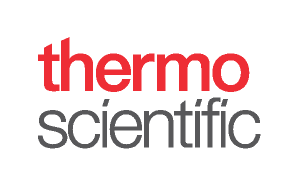Advancing SRM-based proteomics for detection and quantitation of histone modifications in scarce clinical specimens
Histone modifications play an essential role in various biological processes including DNA replication and transcriptional regulation. Analysis of histone modifications using existing mass spectrometry (MS)-based methods requires large numbers of cells; typically a million cells or more. However, for some clinical specimens, such as blood and brain tumors, it is extremely difficult to obtain such a large number of cells, and as a result the capability to measure low abundance modifications has been limited.
An action plan was recently outlined to establish and validate a full pipeline to quantitate all major and rare histone modifications from 106 down to 103 cells. To accomplish this feat, a two-pronged approach was proposed using two different MS strategies: full-length histone analysis (top-down) and triple-quadrupole based tryptic peptide quantitation (bottom-up). In this webinar, we will discuss current and future technology improvements that will significantly improve the limits of detection and quantitation of existing SRM-based bottom-up approach.
For research use only. Not for use in diagnostic procedures.
What will you learn?
- Different approaches for epiproteomic studies
- Strategies for improving PTM detection and quantitation in scarce clinical samples
- Clinical research applications of SRM-based assays
Who may this interest?
- Chromatin/epigenetics researchers
- Bioanalytical mass spectrometrists
- LC-MS scientists
- Clinical researchers
Speaker

Nebiyu Abshiru
Staff Proteomicist
Proteomics Center of Excellence, Northwestern University
Nebiyu Abshiru is a postdoctoral researcher at the Northwestern Proteomics Facility in Chicago, IL, under the supervision of Prof. Neil Kelleher. His field of expertise is in the applications of bioanalytical mass spectrometry in epigenetics and chromatin research. He has developed and validated two major mass spectrometry-based analytical tools that are now available for use by researchers in the field of epigenetics. He recently applied these tools to study the impact of several fission yeast HDAC mutations on the global landscape of histone modifications. His postdoctoral training at the Northwestern Proteomics involves technology development and advancement of mass spectrometry applications in chromatin research in biochemical and clinical settings. Nebiyu obtained his MSc in chemistry at the University of Oslo, Norway, and his PhD in bioanalytical chemistry at the University of Montreal, Canada.
If you are interested in viewing other Bioanalysis Zone webinars, please find our other events listed here.

